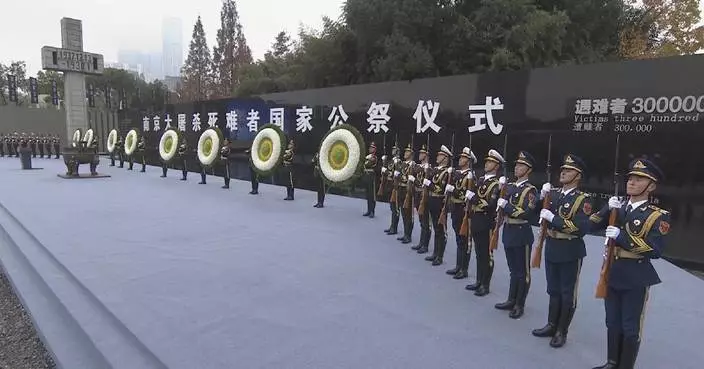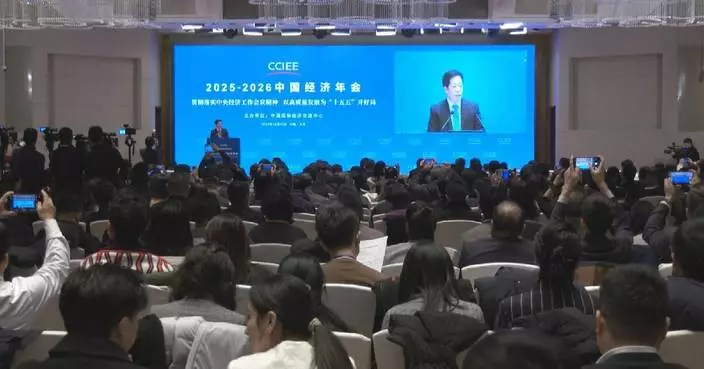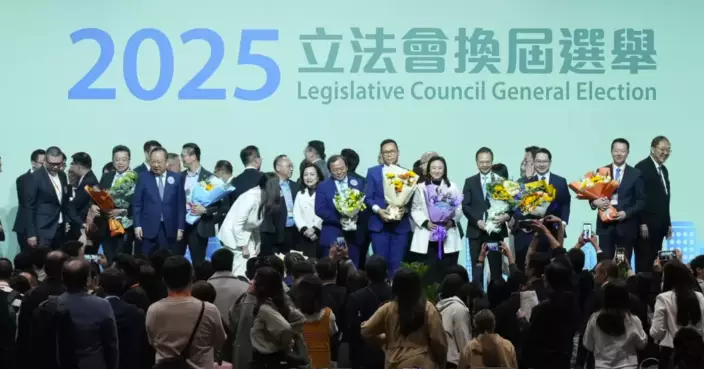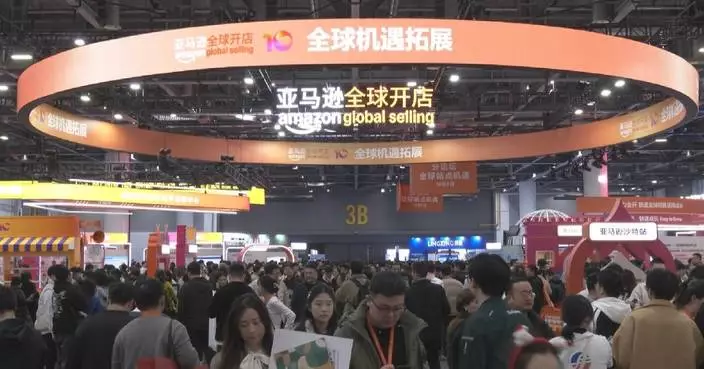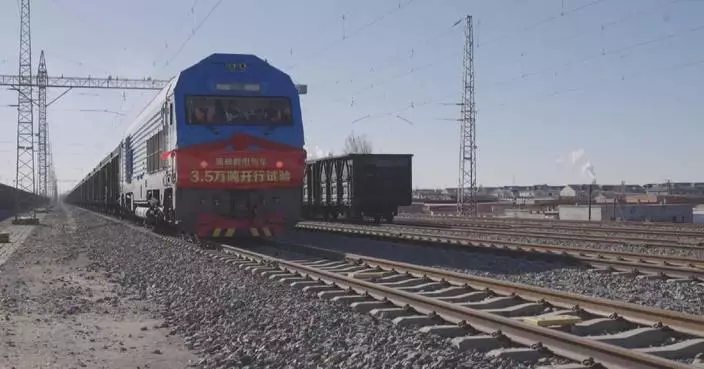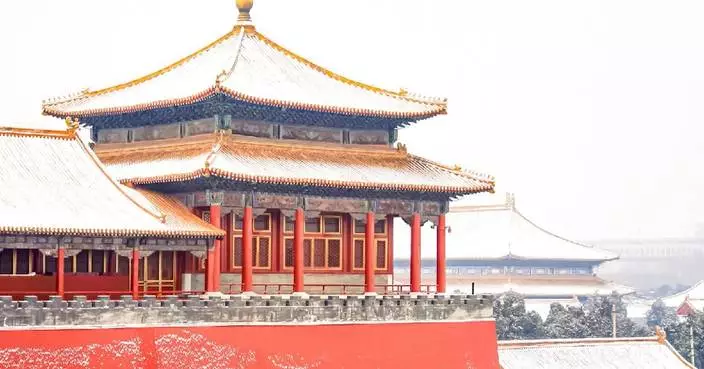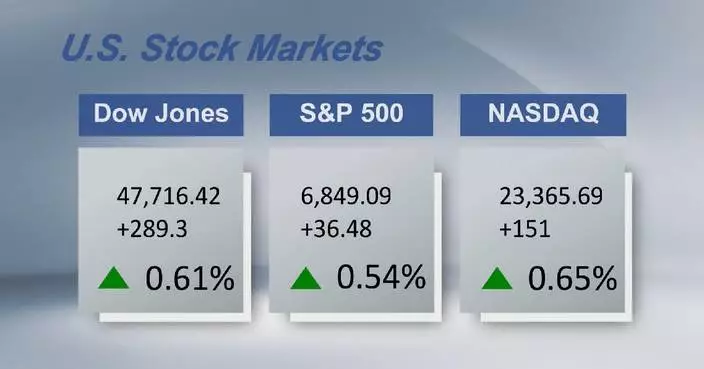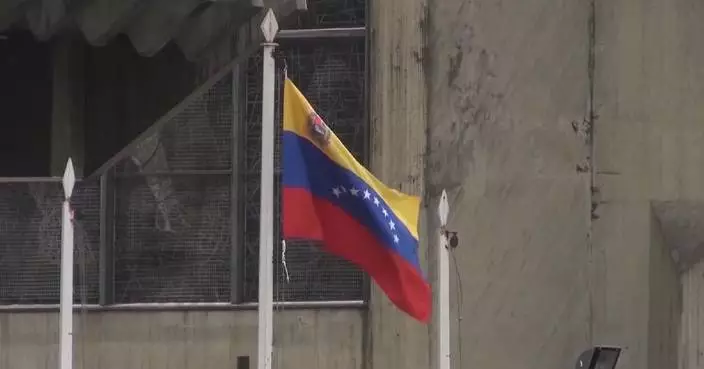Feature · News

Truth of Nanjing Massacre allows no distortion: Canadian historian

China releases historical evidence from Russia on notorious Japanese Unit 731

Digging deep to overcome obstacles

Nobel Peace Prize laureate and others who took on Belarus' president are among the freed prisoners

Chinese academic warns of Japan's regression in historical accountability
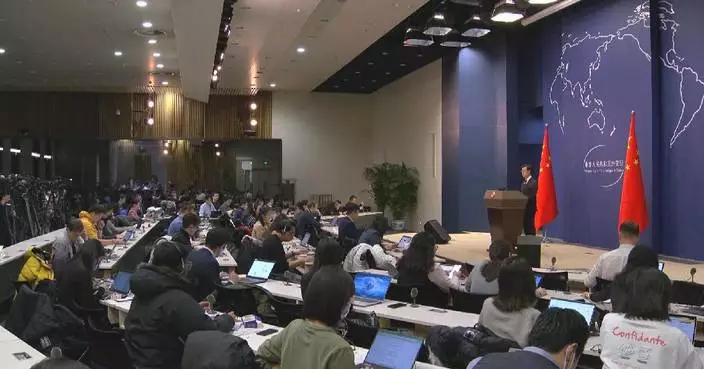
Central gov't firmly supports HKSAR in punishing crimes endangering national security: spokesman

Int'l guests call for remembering history at China's national event honoring Nanjing Massacre victims
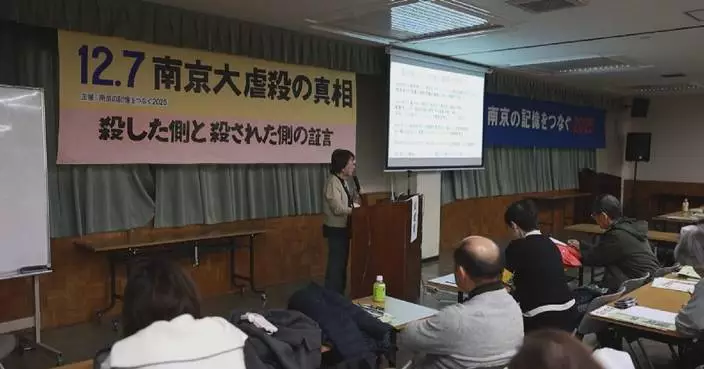
Japanese civil group calls for remembrance of Nanjing Massacre

Video offers new evidence of Japan's wartime germ-warfare crimes in northeast China
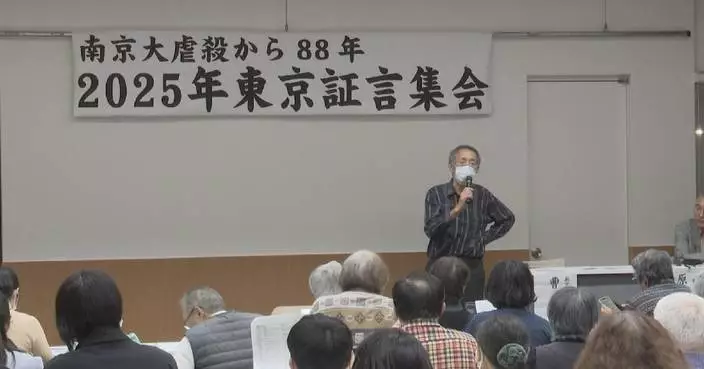
Nanjing Massacre testimonies renew calls in Japan to confront aggression history

More residents flee to shelters as fighting flares along Thailand–Cambodia border

Higher cost, worse coverage: Affordable Care Act enrollees say expiring subsidies will hit them hard

Committee to investigate Tai Po fire will expedite closure for the bereaved
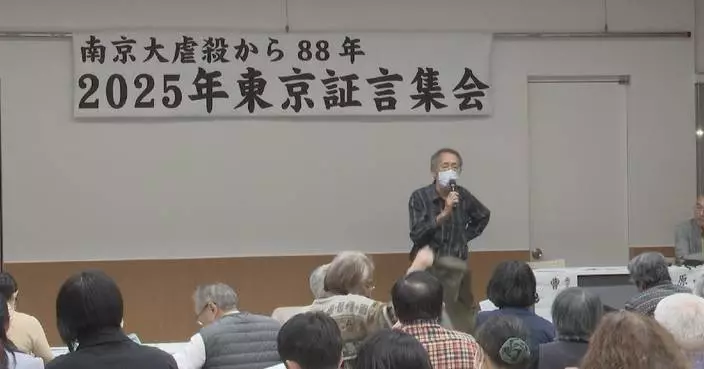
Japanese residents hold memorials for Nanjing Massacre

Video offers details of Japan's germ-warfare crimes in northeast China

Global figures hail high-quality development, resilience of Chinese economy
Int'l guests call for remembering history at China's national event honoring Nanjing Massacre victims
Japanese civil group calls for remembrance of Nanjing Massacre
Video offers new evidence of Japan's wartime germ-warfare crimes in northeast China
Nanjing Massacre testimonies renew calls in Japan to confront aggression history
Truth of Nanjing Massacre allows no distortion: Canadian historian
China releases historical evidence from Russia on notorious Japanese Unit 731
Digging deep to overcome obstacles

Nobel Peace Prize laureate and others who took on Belarus' president are among the freed prisoners
Chinese academic warns of Japan's regression in historical accountability

Central gov't firmly supports HKSAR in punishing crimes endangering national security: spokesman
More residents flee to shelters as fighting flares along Thailand–Cambodia border

Higher cost, worse coverage: Affordable Care Act enrollees say expiring subsidies will hit them hard

Committee to investigate Tai Po fire will expedite closure for the bereaved
Japanese residents hold memorials for Nanjing Massacre
Video offers details of Japan's germ-warfare crimes in northeast China
Global figures hail high-quality development, resilience of Chinese economy
Feature·Bloggers

【What Say You?】Trump and Starmer Barely Bother with Jimmy Lai – Just Lip Service to Check the Box

【Ariel】9 Arrested for Illegal Drills: Tai Po Fire Lurkers Ready to Strike

【Mark Pinkstone】The return of Roach and his poisoned tongue

【What Say You?】UK Agitators Hijack Grief: The "Triplet" Protest Strategy

【Bastille Commentary】Tightening the Net on Subversive “Parliaments” Is Exactly the Point

【Bastille Commentary】The UK Is Truly Sneaky Towards Hong Kong Migrants

Police search Brown University after shooter kills 2 and wounds 9 on campus
- Trump pledges retaliation after 3 Americans are killed in Syria attack that the US blames on IS
- Arctic air sweeps south as residents of the Pacific Northwest remain on guard after severe flooding
- Photos show Arctic air blast hitting northern US and waterlogged Pacific Northwest
- Photos show police investigation of a shooting at Brown University.
- After centuries of conflict, Chile's Indigenous Mapuches fear a far-right political turn
- The Latest: Deadly shooting at Brown University in Rhode Island
- A list of deadly shootings on college campuses in the US
- Michigan expands investigation after firing Sherrone Moore, AP source says
- 'We’re not afraid': Life goes on for Indigenous Colombians despite volcano eruption risk
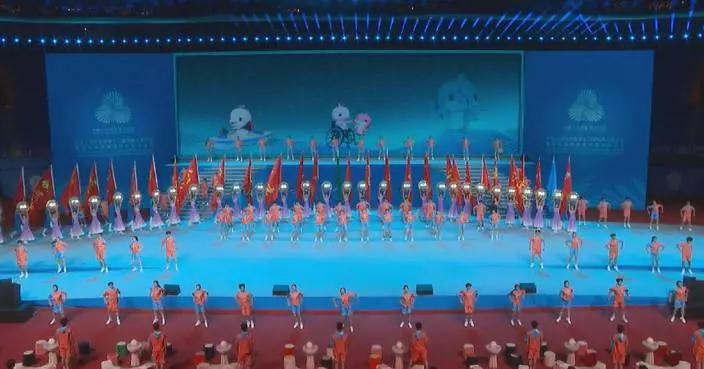
Full-dress rehearsal for National Para Games' closing ceremony held in Shenzhen
- Japanese civil group calls for remembrance of Nanjing Massacre victims
- Facts of Nanjing Massacre cannot be denied: Japanese journalist
- Canadians honor Nanjing Massacre victims, condemn rising militarism
- Candlelight memorials held in China for Nanjing Massacre victims
- Chinese archives' evidence of Unit 731 biological war crimes aligns with Russian Khabarovsk trials records
- China's poverty alleviation experience worth global study: former Singaporean diplomat
- China maps out innovation-focused economic agenda for 2026
- Shenzhen-Zhongshan Link facilitates Greater Bay Area connectivity
- Khabarovsk Trial exposes Japan's germ-warfare crimes in China

Belarus frees Nobel Prize laureate Bialiatski, opposition figure Kolesnikova as US lifts sanctions
- Official streaming platform for the Games of the Future Abu Dhabi 2025 powered by ADNOC launches ahead of opening competition
- Bulgaria's president will start talks on new cabinet after government collapse
- SmallRig and FamilyLens Launch Global Family Filmmaking Initiative at 3rd FamilyLens International Film Festival
- SEAX Global Acquires Major Stake in Interlink Telecom to Accelerate ASEAN Expansion
- HiTHIUM Launches Three Breakthrough Innovations at Its Third Eco-Day, Unlocking an Intelligent Future with Long-Duration Energy Storage
- M7 World Championship unveils first Opening Ceremony, tournament draw, and M7 Pass—elevates Indonesia on global stage
- Ohio State’s Caleb Downs Named 2025 Paycom Jim Thorpe Award Winner
- AI Infrastructure Company EverMind Released EverMemOS, Responding to Profound Challenges in AI
- Second WiresConnect Concludes with Consensus that AI Is Leveling the Commerce Playing Field in Fashion and Beauty

Humanoid robots take center stage at Silicon Valley summit, but skepticism remains
- Winter virus season so far is not too bad, but doctors worry about suffering to come
- Ford turns to stepped-up tech and cooperation with police to thwart F-150 pickup thieves
- A Chinese whistleblower now living in the US is being hunted by Beijing with help from US tech
- Appeals court backs contempt finding against Apple, but reopens a door for iPhone app fees
- Disney invests $1B in OpenAI in deal to bring characters like Mickey Mouse to Sora AI video tool
- These are the key AI players on the cover of Time's 'Architects of AI' magazine
- Open AI, Microsoft face lawsuit over ChatGPT's alleged role in Connecticut murder-suicide
- NASA loses contact with its Maven spacecraft orbiting Mars for the past decade
- Professor Youmin Xi honoured with University of Liverpool Fellowship

Amy Schumer says she and her husband have decided to end their marriage
- Affable comedy acting legend Dick Van Dyke turns 100 years old
- Hailee Steinfeld and NFL husband Josh Allen are expecting their first child
- Meet the Indigenous women behind Mexican President Claudia Sheinbaum's 'most stylish' looks
- Oscar winner Morricone’s lost opera debuts in Naples after 30 years
- Bestselling British writer Joanna Trollope dies at 82
- It feels good to be Jelly Roll. And now, he's ready to win a Grammy
- Photos show Ennio Morricone's opera 'Partenope' as it premieres in Naples
- A dance hall in Buenos Aires guarantees tango sessions with professional partners
- Director convicted of scamming $11M from Netflix and going on lavish spending spree

Patriots and Broncos are both home underdogs despite 10-game winning streaks
- US women's hockey team beats Canada 4-1 in Edmonton to sweep Rivalry Series
- MacKinnon has goal and assist as Avalanche beat Predators 4-2 for 11th straight home win
- Stoddard and Santos-Griswold head to their second Olympics for the US in short track speedskating
- Magic guard Jalen Suggs leaves NBA Cup semifinal with hip injury, tests await in Orlando
- Sergei Bobrovsky and Brad Marchand lead Panthers to 4-0 win over Stars
- Summer Britcher wins gold in Park City, USA Luge's 50th World Cup victory
- Alex DeBrincat scores twice as Red Wings shut out Blackhawks 4-0
- Miller scores 2, including OT winner, as Rangers beat Canadiens 5-4
- Hellebuyck makes 24 saves in return from knee injury, Jets beat Capitals 5-1

Free Chinese Medicine Consultations Available for Residents Affected by Tai Po Fire Starting December 15
- New Vehicle Registration Rules Take Effect December 22: Owners Responsible for Unlicensed Vehicles
- Central Kowloon Bypass Yau Ma Tei Section Opens December 21, Reducing Travel Time to Kowloon Bay to Five Minutes
- Government Task Forces Mobilize $3.7 Billion Fund for Wang Fuk Court Fire Relief Efforts
- Hong Kong Reports No New Chikungunya Cases, Tsing Yi Trails Closed for Mosquito Control Efforts
- Hong Kong Launches GoGlobal Platform to Support Mainland Enterprises in Global Expansion
- Hong Kong Customs Seizes 11 Kilograms of Cannabis Buds at Airport, Arrests Passenger from Bangkok
- Hong Kong Customs Seizes 714 Endangered Bird Eggs Worth $10 Million at Airport
- James McDonald officially accepts LONGINES World’s Best Jockey award
- Former SCED Gregory So Remembered for Contributions to Hong Kong's Economic Development

Israeli military says senior Hamas militant killed in Gaza
- Russia claims launch of large-scale airstrikes, Ukraine reports nationwide blackouts
- Some Venezuelan int'l flights operate normally after US announces airspace closure
- Torrential rain brings more deaths, destruction to war-torn Gaza
- 15 Thai soldiers killed in Thailand-Cambodia border clashes
- Twenty U.S. states sue Trump's fee hike of H-1B visas
- Former Singaporean diplomat highlights significance of World Openness Report
- Japan's Chukiren Peace Memorial Hall brings historical truth to more people
- Macao holds commemoration for Nanjing Massacre victims
- Sense of uncertainty looms over Venezuelan university amid escalating tensions with US
Category · News

Police search Brown University after shooter kills 2 and wounds 9 on campus

Patriots and Broncos are both home underdogs despite 10-game winning streaks

US women's hockey team beats Canada 4-1 in Edmonton to sweep Rivalry Series

MacKinnon has goal and assist as Avalanche beat Predators 4-2 for 11th straight home win

Trump pledges retaliation after 3 Americans are killed in Syria attack that the US blames on IS

Arctic air sweeps south as residents of the Pacific Northwest remain on guard after severe flooding

Photos show Arctic air blast hitting northern US and waterlogged Pacific Northwest

Full-dress rehearsal for National Para Games' closing ceremony held in Shenzhen

Stoddard and Santos-Griswold head to their second Olympics for the US in short track speedskating

Magic guard Jalen Suggs leaves NBA Cup semifinal with hip injury, tests await in Orlando

Photos show police investigation of a shooting at Brown University.

Sergei Bobrovsky and Brad Marchand lead Panthers to 4-0 win over Stars

Summer Britcher wins gold in Park City, USA Luge's 50th World Cup victory
Japanese civil group calls for remembrance of Nanjing Massacre victims

Alex DeBrincat scores twice as Red Wings shut out Blackhawks 4-0

After centuries of conflict, Chile's Indigenous Mapuches fear a far-right political turn

Miller scores 2, including OT winner, as Rangers beat Canadiens 5-4

Hellebuyck makes 24 saves in return from knee injury, Jets beat Capitals 5-1

Jackson Blake scores in shootout as East-best Hurricanes top Flyers 4-3

McDavid has 2 goals and an assist to back Jarry in Oilers' 6-3 win over Maple Leafs
Facts of Nanjing Massacre cannot be denied: Japanese journalist

The Knicks say Jalen Brunson merits MVP consideration. His play says it as well
Israeli military says senior Hamas militant killed in Gaza

Free Chinese Medicine Consultations Available for Residents Affected by Tai Po Fire Starting December 15

The Latest: Deadly shooting at Brown University in Rhode Island

Hutton, McNabb lift Golden Knights past Blue Jackets 3-2

Fernando Mendoza wins the Heisman Trophy as college football's top player
Canadians honor Nanjing Massacre victims, condemn rising militarism
Russia claims launch of large-scale airstrikes, Ukraine reports nationwide blackouts
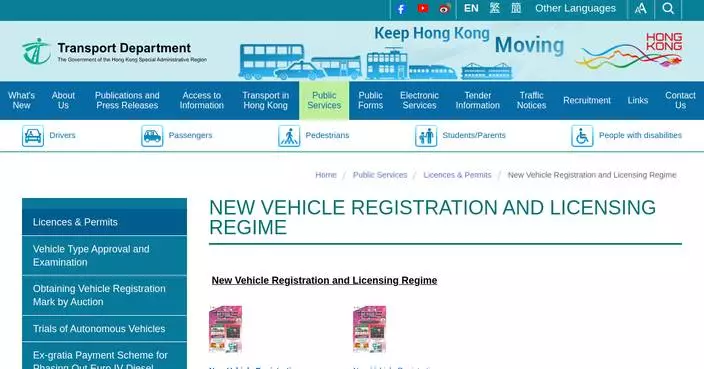
New Vehicle Registration Rules Take Effect December 22: Owners Responsible for Unlicensed Vehicles

Central Kowloon Bypass Yau Ma Tei Section Opens December 21, Reducing Travel Time to Kowloon Bay to Five Minutes

Cavaliers' Evan Mobley will be sidelined 2-4 weeks due to left calf strain

Horvath to Heidenreich on 4th-and-goal leads No. 22 Navy to a 17-16 win over Army
Some Venezuelan int'l flights operate normally after US announces airspace closure

Jalen Brunson's season-high 40 points lead Knicks past Magic to NBA Cup final

A list of deadly shootings on college campuses in the US

Michigan expands investigation after firing Sherrone Moore, AP source says

Michigan search includes Arizona State's Kenny Dillingham, Missouri’s Eli Drinkwitz, AP source says

Barzal, Heineman lift Islanders past Lightning 3-2 in shootout

'We’re not afraid': Life goes on for Indigenous Colombians despite volcano eruption risk

Sharks rally from four-goal third-period deficit to stun Sidney Crosby and the Penguins 6-5

Guerin alters Wild's recipe for success by trading for former Norris Trophy winner Quinn Hughes

Utilityman Amed Rosario and Yankees agree to $2.5 million, 1-year contract, AP source says

Joel Eriksson Ek's late goal lifts Wild past Senators 3-2

Xaivian Lee scores 24 to lead No. 18 Florida to an 80-70 victory over George Washington

Scamacca scores twice for Atalanta to claim just its fourth Serie A win of the season

JuJu Watkins attends USA Basketball camp and focuses on leadership during ACL rehab
Candlelight memorials held in China for Nanjing Massacre victims

Salah returns to help Liverpool beat Brighton and Arsenal needs 2 own-goals to see off Wolves

Raphinha scores 2 as Barcelona wins to add pressure on Real Madrid's Alonso before crunch game

Russia and Ukraine trade attacks as US and European officials prepare for peace talks

Fear grips Congo's Uvira as M23 rebels take control, displacing 200,000

Belarus frees Nobel Prize laureate Bialiatski, opposition figure Kolesnikova as US lifts sanctions

Mets reach 2-year deal with infielder Jorge Polanco after losing Pete Alonso, AP source says

More loons are filling Maine's lakes with their ghostlike calls

Terrier's spectacular backheel sets up Leverkusen's derby win over Cologne

Devils beat the Ducks 4-1 to end a 5-game home losing streak

Packers running back Emanuel Wilson joins Josh Jacobs on injured report

Colts activate 44-year-old QB Philip Rivers, making him eligible to play Sunday against Seahawks

Maresca slams lack of support at Chelsea after 'worst' period in his time at the club

Orbán's rival leads protest over alleged child abuse in Hungary's state-run institutions

Slot says 'no issue' with Salah after Egypt star recalled for Liverpool win

Fighting rages on Thai-Cambodian border despite Trump's ceasefire claim

Amy Schumer says she and her husband have decided to end their marriage

What to know about King Charles III's cancer treatment and his message to the public

As Trump slams Europe over migration, most leaders toughen their stance. Spain is an exception

Agnelli family affirms Juventus ownership and rejects buyout offer from cryptocurrency firm

UK police won't probe claim former prince asked bodyguard to investigate Virginia Giuffre

Israel says it has killed a top Hamas commander in Gaza

Some Native Americans draw shocked response over contract to design immigration detention centers

Affable comedy acting legend Dick Van Dyke turns 100 years old

Photos of amputees in Gaza, struggling to survive after losing limbs to Israeli airstrikes

Alabama vows to address Oklahoma's 'disrespect' when they meet in the CFP's opening round

Official streaming platform for the Games of the Future Abu Dhabi 2025 powered by ADNOC launches ahead of opening competition
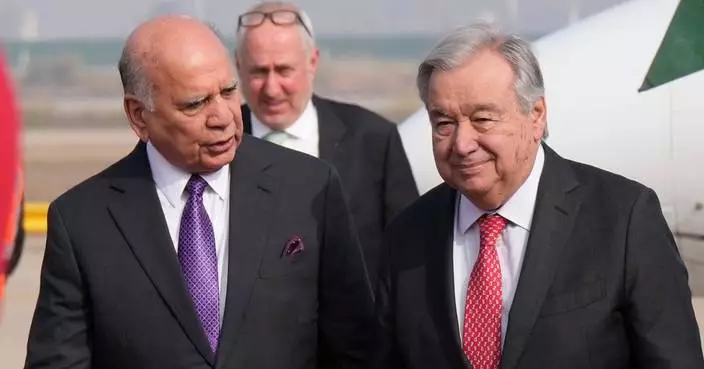
UN chief visits Iraq to mark end of assistance mission set up after 2003 invasion
Torrential rain brings more deaths, destruction to war-torn Gaza

Messi's tour of India gets off to chaotic start as angry fans storm field
15 Thai soldiers killed in Thailand-Cambodia border clashes

Loic Meillard leads Swiss podium sweep at World Cup giant slalom in Val d'Isere
Chinese archives' evidence of Unit 731 biological war crimes aligns with Russian Khabarovsk trials records

Government Task Forces Mobilize $3.7 Billion Fund for Wang Fuk Court Fire Relief Efforts

Grassley built a reputation for government oversight. Has he abandoned it under Trump?

In Alaska’s warming Arctic, photos show an Indigenous elder passing down hunting traditions

Lindsey Vonn places 2nd in a World Cup downhill a day after becoming oldest winner at age 41




